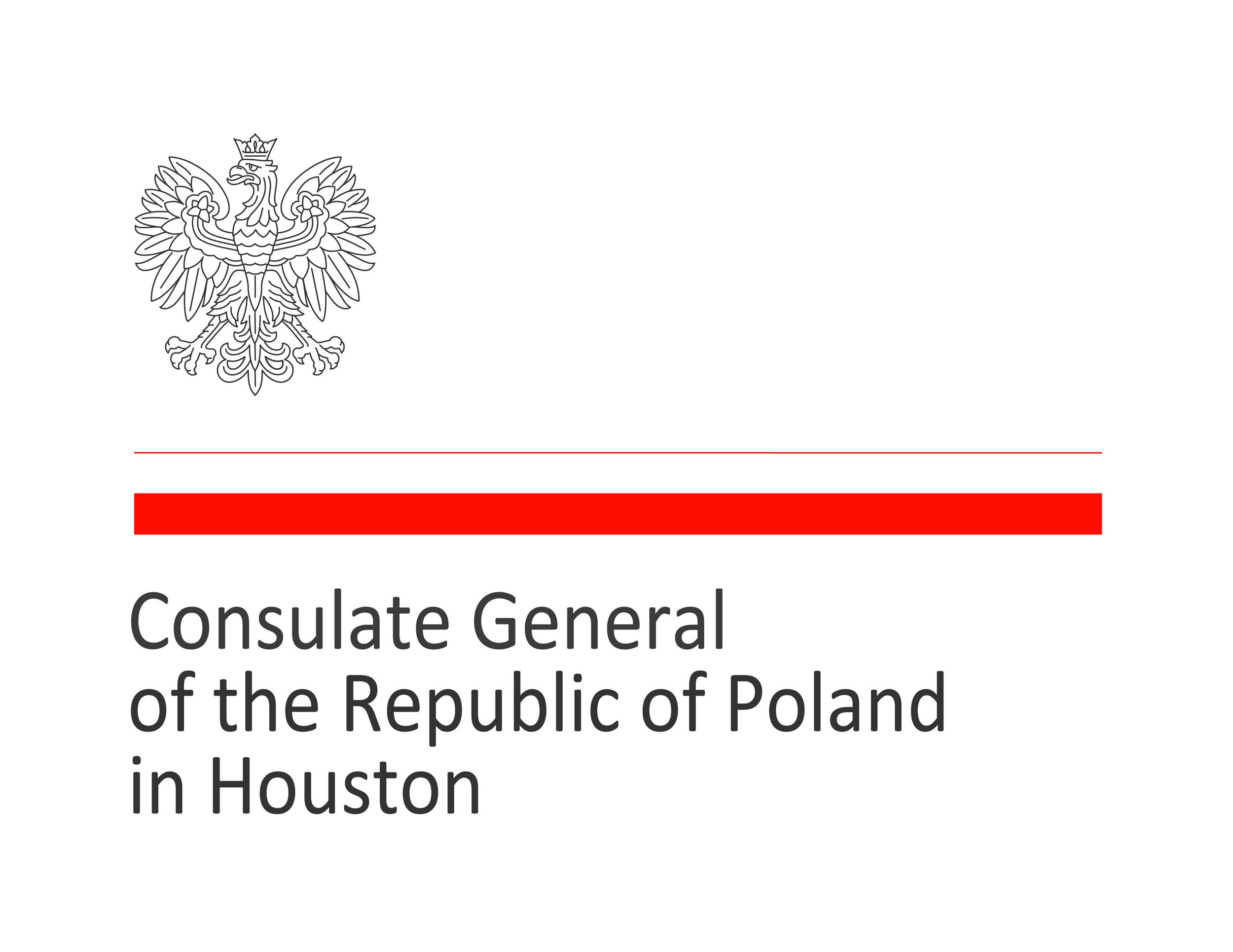CultureAvenue Interviews ROMA KING, author of " Footsteps in the Snow"
/(Original Polish version on http://www.cultureave.com/pamiec-sladow/)
Joanna Sokołowska-Gwizdka:
You were just a baby when you, your mother, grandfather, and great grandmother got deported to Siberia. Where did your family come from, and what was their life like before the war?
Roma King:
My family comes from Vilnius, which is where I was born. My dad’s father, Antoni Michniewicz, had an estate in Stare Święciany, about 70 km north of Vilnius. The family was wealthy. My dad, Romuald Michniewicz, was an only child. He got a law degree from Stefan Batory University in Vilnius, and then graduated from a military academy. My mother’s family, Danowski, also lived in Vilnius. My mom, Janina Danowska, used to tell me and my brother that she was a descendant of the nobility.
My parents got married in 1938. I’ve heard stories of how happy they were, and you can see this happiness in the pre-war photographs. When the war broke out, my dad took us to our grandfather’s estate in Stare Święciany. Vilnius was getting bombed, and he felt we would be safer there. Sadly, four weeks later the Russians seized the estate, and deported me, my mother, my grandfather and great grandmother to Siberia.
What was it like for a Polish family to live in Siberia?
We lived day to day, with no hope. Nobody believed you could ever escape from the Siberian taiga. My great grandmother and grandpa took care of my mom and me. Had it not been for them, we probably wouldn’t have survived the first few months.
Your father was held in a Moscow prison, but once he was released in an amnesty granted by Stalin, he found his family. Tell me a little bit about what happened after you were reunited.
My dad found us after he was released from prison. He intended to get us out of Siberia, together with eleven other Polish families from two kolkhozes. He had secured all the necessary documents from the headquarters of General Anders’ Army. The families were told they would be leaving Siberia to join the Anders Army, and every single one of them turned up at the train station. But the NKVD [People’s Commissariat for Internal Affairs – a law enforcement agency of the Soviet government] wouldn’t let them go. My father was told he was free to leave; the amnesty covered him as an officer but it did not cover the civilians – after all, who would farm the land, work in the mines or cut down forests if all deportees were allowed to leave – they were not going anywhere!
The NKVD were adamant, and even the papers issued by General Anders could do nothing to persuade them to change their mind. We were all told to turn around, and get back to the kolkhozes.
That’s when my father got really sick, and ended up in a hospital. Grandpa insisted that he should leave as soon as possible, and take his wife and child with him. He told my father – “if you don’t take them with you now, you will never see them again.” But my dad couldn’t imagine leaving his father and grandmother behind in Siberia. In the end, grandpa talked him into it, arguing that the return journey was more than he and my great grandmother could handle, and that they would only be a burden. “We’ve had a good life, it’s your turn now” – grandpa told my dad – “We’ve been here for two and a half years, got to know the local Russian kolkhoz workers; they are good people, and they will help us if we are in need.”
You never lived in Poland after the war, or attended a Polish school – and yet your spoken and written Polish is impeccable. Was it your mother who taught you Polish?
Yes, I have my mom to thank for my command of Polish. She put all her heart and a lot of effort into teaching me not only the Polish language but also Polish literature and history.
This is something I will always be grateful to her for. Even after I got married, she kept sending me Polish books from the UK – Krzyżacy [Knights of the Teutonic Order] or Pan Wołodyjowski [Colonel Wolodyjowski], and reminding me that “reading is the best way to master the language – look at every word, and take a mental picture of it to memorize the spelling.”
Ms. Roma King with a poster for the movie based on her book
When did you decide to write a book about the story of your family - Footsteps in the Snow?
My mom shared family stories with me every chance she had; she would put little notes in her letters, answering my questions or adding details to whatever we’d discussed before. And she would say: “Write it all down, for our grandchildren and great grandchildren to learn the sad story of our family, forcibly uprooted from our home and motherland, and deported to the far ends of Siberia.”
And so after I retired from UCLA, I sat down with my mom’s notes as well as my own to tell our story for our grandchildren and great grandchildren. I wrote it all down, and ended up with a rather elaborate account. Then I asked a friend of mine to read it. She called me the following day, bursting with excitement – “I stayed up till 3 am reading your book” she said – “I couldn’t put it down, it’s so great! I know you intended it for your grandchildren and great grandchildren, but it’s actually a great read for anybody interested in the human experience and history. Skip some of the terms of endearment, and you’ll have a brilliant book for adult readers. And your grandchildren will enjoy it as well!”
I took her advice. I edited the text, had one of my students design the cover based on my own concept, and published the book.
How was your book received? Did you go on a book tour? Who comes to your book readings?
Footsteps in the Snow turned out to be highly popular. I did readings in five different states, and book signing events wherever I had friends. I graduated from the University of Michigan at Ann Arbor, so the first person I reached out to was my best friend who became the Director of Libraries on Campus in Ann Arbor. She was thrilled to hear about my book, and wrote back offering to organize a book signing event at the campus library, and invited me to stay with her. So that was my first stop on the book tour, followed by Phoenix (Arizona), Atlanta (Georgia), Santa Monica (California), and Flint (Michigan). Almost all book signing events were held in libraries, except for the one in Phoenix, where a friend of mine hosted the event at her own home with 80 people in attendance. The UCLA faculty wives club in Los Angeles, where I have been a member for the past 20 years, also hosted several book signing events. The book sold 1,500 copies over a short period of time, and we needed to order a second print run.
People who come to my book events are usually American, between 50 and 70 years old. At that age, people generally have more time for themselves. They are surprised to learn about the history of Poland, and the turbulent stories of Polish families. But I also see young people come to the book signings, which fills my heart with great joy. I wrote my story for them, the next generations.
How did your book get made into a movie – a documentary drama Footsteps in the snow (2018) directed by Ignacy Szczepański, who also wrote the screenplay, with Mateusz Damięcki playing your father Romuald Michniewicz?
Someone gave my book to the director of Studio Filmowe WIR [film production company] in Warsaw. He read it, and wrote me asking if they could turn my book into a documentary drama. “Oh but of course – YES!” – I couldn’t be happier. That was the start of our long cooperation. I visited Poland in 2016 and 2017, gave interviews, and spent time on the movie set. On September 18, 2018 I attended the official movie premiere gala at Muranów cinema in Warsaw. A few days earlier, on September 8, my very good friend Marta Kaczkowska arranged a beautiful advance screening of the movie at Wilkowice Hall near Rawa Mazowiecka. The venue of the screening truly touched my heart, as the house very much resembled my grandfather’s estate near Vilnius. The Wilkowice Hall estate also has an excellent vineyard that exports wines to a number of European countries. My friend extended the invitation to the film crew, as well as many distinguished guests. It was such an elegant affair, with an exquisite formal sit-down dinner, and endless conversations. I will cherish the memory of that wonderful night forever.
How was the film received in Poland?
The reactions of the audience were very warm, and truly heartfelt. After the advance screening at Wilkowice Hall as well as the official premiere at Muranów cinema, people stood in long lines to meet me and thank me for writing the book that the film was based on. Many talked about how little they knew about Siberia, and the life of Polish deportees there, who had been taken away from their homes and forced into labor.
I also spoke to people whose family members never made it back from Siberia. There were tears and talk about how for a very long time – after World War II until the times of Solidarity - the deportation of 2 million people from the eastern borderlands of Poland to Siberia was a forbidden topic, punishable by imprisonment. None of that was taught in schools. Such were the communist times.
What’s your personal take on the movie?
For me this film is first and foremost about my father. His courage, integrity, and love for the family are such remarkable and universal qualities. I am happy that the story of my family may teach others about what matters most in life, what we must cherish and cultivate. Family, love, and your country – those are the most precious things that we should care for. And regardless of how successful we are in our business or career, there is no obstacle in life that cannot be surmounted with the love and support of our loved ones, and family by our side.
As general Józef Pilsudski said: “To want to, is to be able to; to want to, is to win!”
_______________
Footsteps in the Snow will be screened during the Austin Polish Film Festival on Sunday November 11, 2018 at 12:00 pm, with Ms. Roma King in attendance.
Written by Joanna Sokolowska-Gwizdka and translated to English by Anna Boyet.












